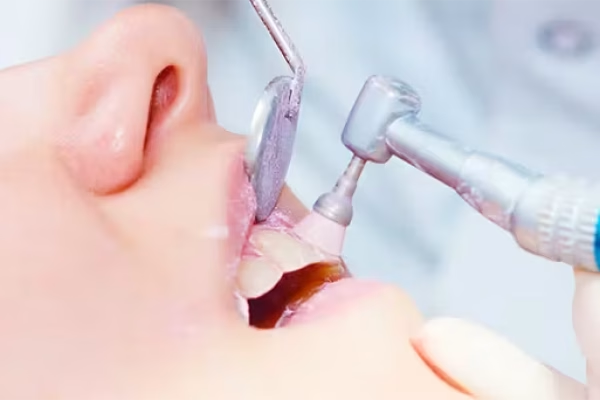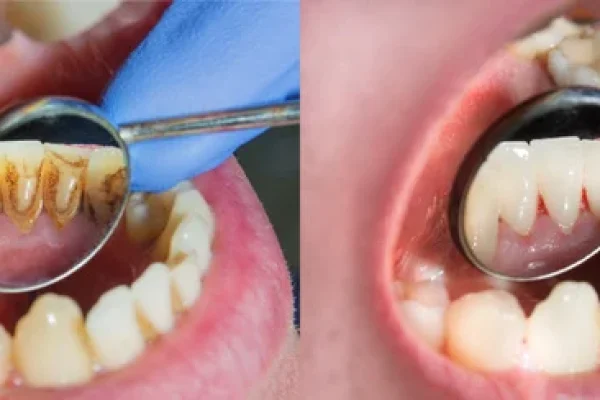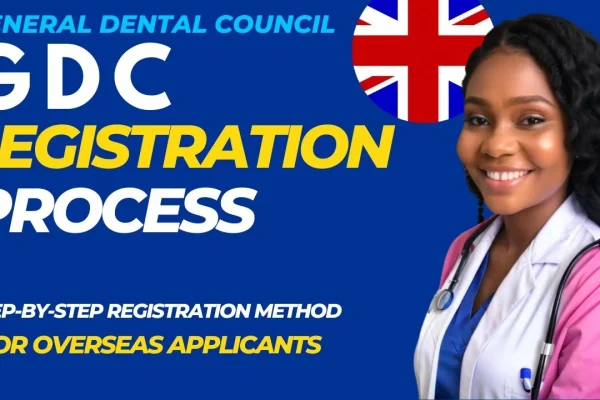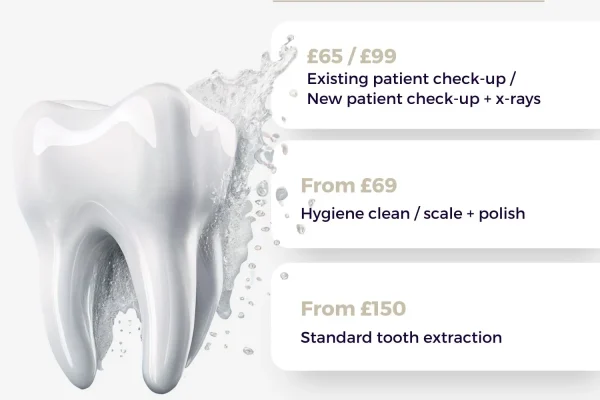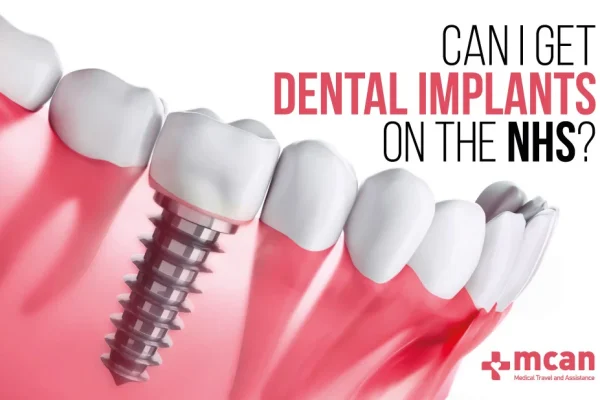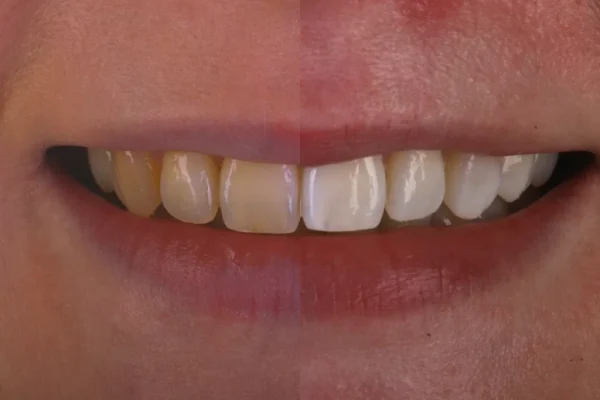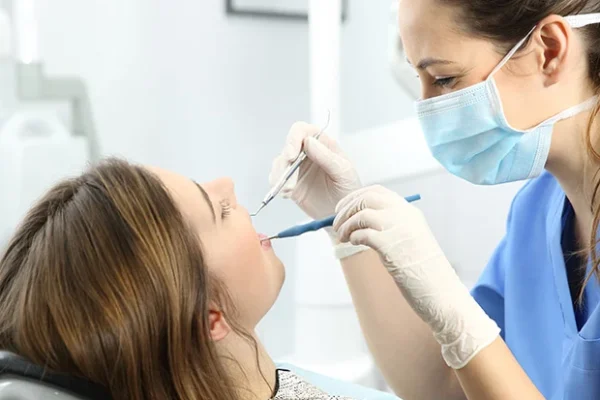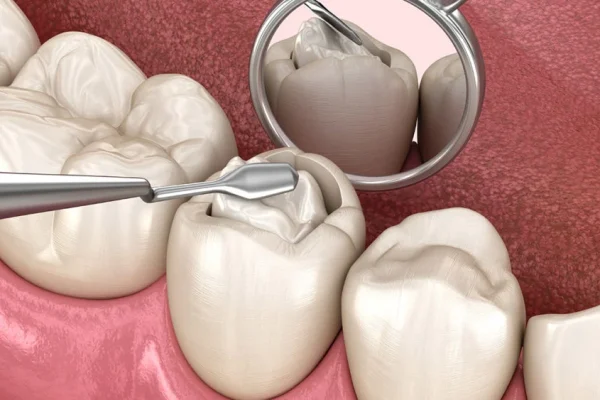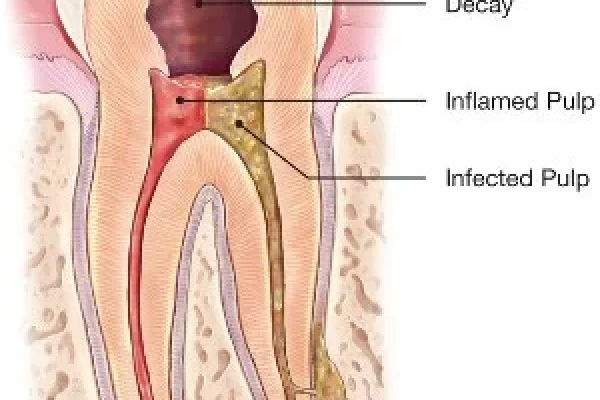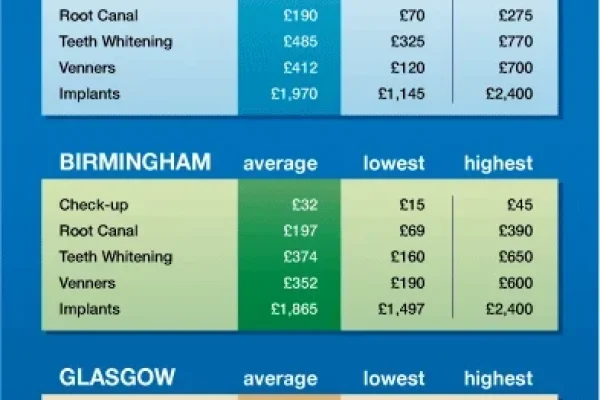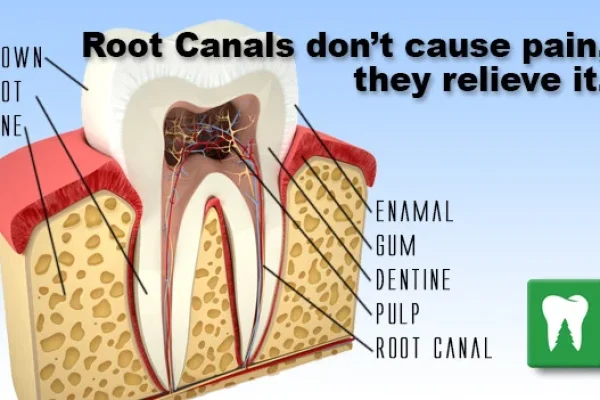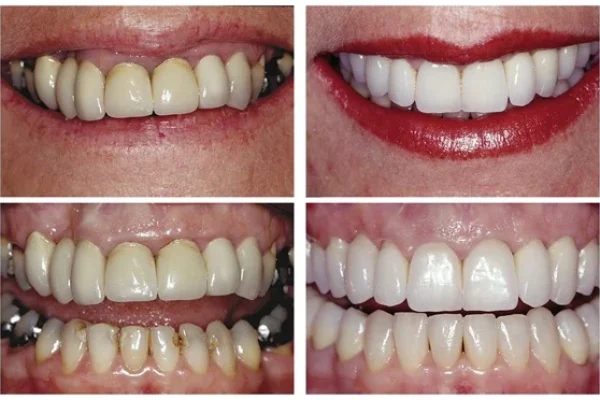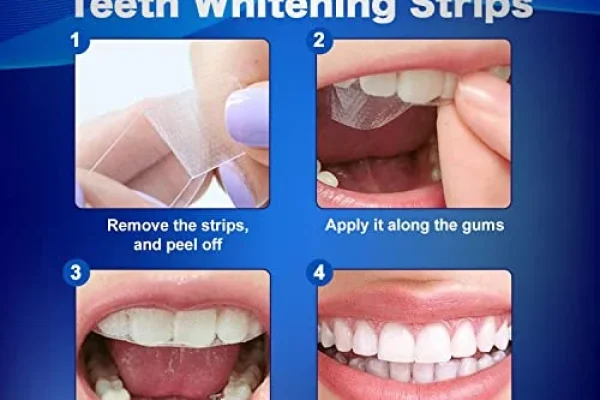
Table of Contents
ToggleKey Takeaways
- Finding an NHS dentist *taking* new patients is often challenging due to capacity issues.
- You don’t typically “register” permanently; your link to a practice depends on receiving NHS treatment.
- The primary way to find a dentist is using the NHS ‘Find a Dentist’ tool and then *calling practices directly*.
- Eligibility for NHS treatment is broad, but finding *access* is the main hurdle.
- Your active patient status with an NHS practice usually lasts 24 months from your last NHS treatment (the 2-year rule).
- NHS dental costs are fixed into bands; eligibility for free treatment depends on age, income, or benefits.
- Urgent NHS dental care is available even if you are not registered with a practice.
- Always verify a dental professional’s registration on the General Dental Council (GDC) website.
NHS Dental Register: How to Find and Register for NHS Dental Care
Forget everything you thought you knew about “registering” with a doctor. The world of NHS dentistry operates on a slightly different wavelength. You don’t typically just sign onto a list at a practice and magically become a registered patient in perpetuity, ready for your biannual check-up. Oh no, it’s a bit more nuanced than that. Understanding this fundamental difference is your absolute first step in navigating the system. When people talk about “nhs dental register” or wanting to “register nhs dentist,” they’re usually talking about the process of finding a practice willing and able to *accept* them for a course of NHS treatment. Once a practice agrees to treat you under the NHS framework, that act of beginning treatment essentially links you to that practice as an active patient for a specific period, often referred to informally as ‘registration’. This isn’t like being on a permanent GP list; it’s contingent on receiving care. The general process involves locating practices in your vicinity, confirming they’re open to new NHS patients (a significant hurdle, as we’ll discuss), and then providing them with your details so they can add you to their system *if* they accept you for treatment. Keywords such as “nhs dental registration,” “register nhs dentist,” “nhs dentist register,” and “register with a dentist” all orbit around this core action of successfully linking yourself to a dental practice capable of providing care under the NHS umbrella. It’s less about a central ‘register’ you sign up to, and more about the individual practice’s capacity and willingness to take you on for necessary treatment.
How to register as an NHS dentist patient?
Alright, let’s break down the practical steps you’ll likely face when attempting to become an NHS dental patient. The most common pathway starts not with filling out a central form somewhere online, but by engaging directly with dental practices in your local area. Your mission, should you choose to accept it (and frankly, if you need dental care, you must), is to find practices and contact them to ask a single, crucial question: “Are you currently accepting new NHS patients?” If the answer is yes (celebrate this small victory!), they will then guide you through *their* specific process. This typically involves providing personal information – your full name, date of birth, address, contact details, and potentially your NHS number if you know it. You’ll also almost certainly be asked to fill out a medical history questionnaire; this is vital for the dental team to understand any conditions or medications that might impact your dental health or treatment. Some practices might require you to attend a brief introductory appointment or consultation before formally listing you, while others simply ask you to complete paperwork on your first treatment visit. It really varies from one practice to the next. The key takeaway here is that “registering” isn’t a passive act; it’s an active pursuit initiated by you, the patient, contacting practices and providing the necessary information *once* they confirm they have the capacity under their NHS contract to take you on. Phrases like “register nhs dentist” or “register at a dentist” often overlook this initial, fundamental step of *finding* one with space.
How to register with a dentist?
When you set out to “register with a dentist,” whether NHS or private, the fundamental act is establishing yourself as a patient at their practice. For NHS care, as highlighted, this immediately hits the snag of availability. Your first move is always finding practices nearby. Once you’ve located potentials (more on that in the next section), you need to make contact – a phone call, an email, or sometimes even walking in. Your explicit query must be about their status regarding *new NHS patients*. Be prepared for waiting lists; even if they *are* accepting, it might not mean immediate access to a routine appointment. They might add you to a list to be contacted when space arises, which could be months away depending on local demand. Providing your details at this stage confirms your interest and allows them to potentially add you to their waiting pool. It’s a process requiring persistence. Keywords like “register for a dentist,” “register for dentist,” and “register at a dentist” often imply a simpler process than the reality of the current NHS dental landscape, where finding an opening is the primary challenge before the administrative act of providing your details. Making that initial contact and confirming acceptance status is the critical first hurdle.
How to Find an NHS Dentist Taking New Patients?
Ah, the great NHS dentist hunt. For many across the UK, this isn’t just a routine task; it’s a challenge frequently cited as one of the most frustrating aspects of accessing healthcare. Finding a dental practice that genuinely has capacity and an NHS contract allowing them to take on new patients can feel like searching for a mythical creature. The difficulty is widespread and well-documented, often dominating local news headlines and patient forums. However, despair not entirely, for there are prescribed methods to aid your search, even if they don’t guarantee instant success. The primary, official resource at your disposal is the NHS website’s ‘Find a Dentist’ tool. This online portal is designed to list dental practices in your area and, crucially, should indicate their status regarding accepting new NHS patients. While it’s the designated starting point, it’s essential to treat the information there with a degree of caution; practice availability can change rapidly, and sometimes the online lists aren’t updated in real-time. Therefore, while the tool provides a list of potential practices, a vital second step is almost always required: contacting the practices directly. Picking up the phone, or sending an email, allows you to get the most current information straight from the source. It’s a necessary layer of verification in a system often strained by demand. Keywords like “searching for a dentist,” “find my dentist,” and the highly specific “Find an NHS dentist taking new patients” directly address this prevalent difficulty and the user’s core need to locate an available provider.
How to use the NHS dentist search tool?
Navigating the official channels is your best bet for a structured search, even if the results require confirmation. The main NHS website (nhs.uk in England) hosts a ‘Find a Dentist’ tool. Regional variations exist – Scotland has mygov.scot, Wales uses the Dental Access Portal via Digital Health and Care Wales, and Northern Ireland has specific HSCNI information. For the general NHS tool (most relevant to England), you typically start by entering your postcode or location. The tool will then display a list of dental practices in that vicinity. Crucially, look for indicators next to the practice listing about whether they are accepting new NHS patients. This might be explicitly stated, or sometimes colour-coded. Don’t just note the address; pay close attention to this availability status. Some tools allow you to filter results specifically for practices taking new NHS patients. While incredibly useful for generating a list of potentials, remember the caveat: *always* verify this information by contacting the practice directly before assuming you can register or get an appointment. Information can be outdated, and waiting lists might exist even if they are technically “accepting.” Using the tool effectively means understanding its purpose as a guide, not a definitive booking system. Keywords like “nhs dentist search” and “Find a dentist – NHS” point directly to this essential digital resource.
Where can I find a list of dentists in my area?
Beyond the official NHS search tool, which is undoubtedly the primary source for locating NHS practices, there are other avenues to gather a list of potential dentists in your vicinity. Start with the NHS tool as described above; it should provide a comprehensive directory of practices holding NHS contracts within a reasonable distance of your postcode. This list will be the most relevant for finding NHS care specifically. However, you can supplement this. Local council websites or community health service pages sometimes list healthcare providers, although they might not always specify NHS availability as clearly as the dedicated NHS tool. Private dental directories also exist online, but these will list *all* dentists, and you would still need to verify their NHS status independently. For a purely NHS-focused search, the official NHS website is your best bet for compiling that initial list. Once you have the names and contact details of practices near you, the real work of calling each one begins – asking about NHS registration status and current capacity. Keywords like “dentists my area,” “list dentists,” and “dentist list” all reflect the user’s need for this initial directory of options to begin their search.
Why Can’t I Find an NHS Dentist Currently Registering Patients?
This question is, sadly, one of the most common and pressing concerns for people across the UK. The difficulty in finding an NHS dentist accepting new patients isn’t a glitch; it’s a systemic issue rooted in a complex interplay of factors. It’s a reality that leaves countless individuals in pain or neglecting essential preventative care, feeling frustrated and abandoned by a system designed to provide universal healthcare. The simple answer often boils down to capacity – there isn’t enough NHS dental provision to meet the current demand. But *why* is that the case? Several significant reasons contribute to this challenging landscape. Understanding these factors doesn’t solve the problem, but it sheds light on the situation patients face. It’s a consequence of historical underfunding, a contractual framework that many dentists find unworkable or financially unsustainable for complex cases, difficulties in recruiting and retaining dental professionals within the NHS system, and a significant increase in demand, partly exacerbated by pandemic-related backlogs. When you ask “Why can’t I get an NHS dentist?” or express frustration that “no dentist taking NHS patients,” you are vocalizing a widespread issue born from these pressures on the service.
Why are dentists not accepting new NHS patients?
Delving deeper into *why* this capacity crunch exists reveals the pressures on dental practices. Firstly, the NHS dental contract, particularly in England, is a major point of contention. Many dentists argue the Unit of Dental Activity (UDA) system, which pays a fixed rate for courses of treatment regardless of complexity or time spent, makes treating certain NHS patients financially unviable compared to private work. This can lead practices to limit the amount of NHS work they undertake or even hand back their NHS contracts entirely. Secondly, there’s a significant workforce issue. Recruiting dentists, dental nurses, and hygienists willing to work under NHS conditions can be challenging, particularly in certain geographical areas. This leads to practices having the *contract* but not the *staff* to deliver the care, forcing them to close their books to new patients. High demand, fuelled by population growth and potentially delayed treatment during the pandemic, simply overwhelms the available appointments and practitioners. Practices that do retain NHS contracts often have waiting lists stretching months or even years. It’s not usually a case of dentists *not wanting* to treat patients, but rather the complex, challenging environment of delivering NHS dentistry makes it difficult or impossible for many practices to sustainably take on new patients while maintaining quality care for their existing list. The keywords “Why can’t I get an NHS dentist?” and “Why is no dentist taking NHS patients?” perfectly capture the public’s direct experience of this systemic crisis.
Do I Qualify as an NHS Dental Patient? Eligibility Explained
This is where another layer of potential confusion arises. The concept of “qualifying” for NHS dental treatment isn’t quite the same as qualifying for, say, a specific benefit. Generally speaking, if you are ordinarily resident in the UK, you are *eligible* to receive NHS dental treatment. The hurdle isn’t usually *who* is allowed treatment in principle, but rather the practical reality of *finding a practice* that has the capacity to provide that treatment under an NHS contract. So, when you ask “Do I qualify as an NHS dental patient?”, the answer for most UK residents is a straightforward yes, you are eligible for the *service*. The term “NHS dental patient” is more about your status *with a specific practice* having been accepted for and received a course of NHS treatment, rather than meeting some national eligibility criteria just to get on a list. Your eligibility primarily relates to *which band of charges* you might have to pay, or if you are eligible for free treatment, not whether you are fundamentally allowed to seek NHS dental care at all.
Can everyone get NHS dental treatment?
In theory, yes, everyone ordinarily resident in the UK can access NHS dental services. The National Health Service is founded on the principle of universal care. However, and this is a crucial distinction, the *availability* of NHS dental treatment in practice is severely limited by the issues discussed previously – capacity, funding, and workforce. So, while *everyone is eligible to receive NHS treatment*, not everyone can *find a practice* currently able to offer it. The access issue is a practical barrier, not an eligibility one based on your status as a resident. Furthermore, while everyone is *eligible* for the treatment itself, eligibility for *free* NHS dental treatment is restricted to specific groups based on age, income, benefits received, or certain medical conditions (we’ll cover this later). So, yes, everyone *can* get it in principle, but finding it is the real challenge, and paying for it depends on your individual circumstances.
Can an NHS dentist refuse to register you?
Yes, an NHS dentist can refuse to accept you as a new patient, and this is a major part of the current access crisis. Practices are generally not *obligated* to accept new NHS patients if they do not have the capacity under their NHS contract or within their current staffing levels. Think of it like a restaurant that’s fully booked; they can’t take walk-ins. Similarly, a dental practice with a full list of NHS patients, or one that has fulfilled its contractual commitment for a period, can quite legitimately say they are not taking on new NHS patients at that time. They cannot refuse you based on discriminatory grounds (like race, religion, gender, disability etc.), nor should they refuse emergency treatment if they are the designated local provider for such care. However, they *can* refuse routine registration if their list is full or if their NHS contract capacity has been reached. They might also refuse to continue treating an existing patient in certain circumstances, such as persistent failure to attend appointments or abusive behaviour towards staff, but this is different from refusing initial registration. The keyword “Can an NHS dentist refuse to register you?” highlights a key point of confusion and frustration for the public seeking access.
What are your rights regarding an NHS dentist?
While finding an NHS dentist can be tough, once you are accepted by a practice for treatment, or if you need urgent care, you do have rights. Your primary right within the NHS dental system is to receive necessary treatment to secure and maintain your oral health. This treatment should be clinically appropriate and offered under the terms of the NHS contract. You have the right to be informed about the treatment options available to you, both NHS and potentially private, and to understand the associated costs *before* agreeing to any treatment plan. You also have the right to receive a written treatment plan detailing the proposed work and the estimated NHS costs, particularly for Band 2 and Band 3 treatments. If you require urgent dental treatment for severe pain, trauma, or swelling, you have the right to access emergency NHS dental services, often via NHS 111, even if you are not “registered” with a specific practice for routine care. While you have the right to *choose* which NHS dentist you go to, this right is currently heavily constrained by the limited availability of practices accepting new patients. You also have the right to complain if you are unhappy with the care or service received. The keyword “Your right to an NHS dentist” encapsulates the patient’s perspective on what they are entitled to within the system.
How Long Does NHS Dental Registration Last?
Here’s another area where NHS dentistry diverges significantly from GP services and often causes confusion. Unlike your GP, with whom you are typically registered indefinitely unless you move area or switch practices, your connection to an NHS dental practice as an ‘active’ patient has an expiry date. This isn’t a permanent status; it’s intrinsically linked to receiving treatment. The formal concept governing this is often referred to as the “2-year rule.” It’s vital to understand this mechanism, as failing to do so is a primary reason why people find themselves unexpectedly without a regular NHS dentist. The clock starts ticking not when you fill out a form, but after you complete a course of NHS treatment at a practice. Your status as an active NHS patient with *that specific practice* is maintained for 24 months from the date the treatment was completed. After this period, if you haven’t returned for further NHS treatment (a check-up, filling, etc., that constitutes a ‘course of treatment’ under the NHS bands), the practice is generally entitled to remove you from their list of active NHS patients. This doesn’t mean you’re banned from NHS dentistry forever, just that you lose your established link with that particular practice and would need to find a new one accepting patients, rejoining the difficult search mentioned earlier. The keyword “How long does NHS dental registration last?” is a direct query addressing this limited timeframe.
What is the NHS dentist 2 year rule?
Let’s nail down the specifics of the 2-year rule, also sometimes confusingly referred to incorrectly as the “2-month rule for NHS dentistry” (that two-month period sometimes relates to how long you have to pay a charge after treatment, not registration duration). The *actual* rule is 24 months, or two years. Under the standard NHS dental contract in England (and similar principles apply with variations in other UK nations), a patient is considered ‘active’ with a dental practice for NHS purposes for 24 months following the completion of their last course of NHS treatment at that practice. A ‘course of treatment’ isn’t just popping in for advice; it’s typically a Band 1, 2, or 3 treatment, which includes examinations. So, if your last NHS treatment, even if it was just a check-up coded as a Band 1 course, finished on October 15th, 2022, you would generally remain an active patient for that practice until October 14th, 2024. To maintain your ‘active’ status with *that specific practice*, you would need to start and complete another course of NHS treatment before the 24 months are up. If you don’t, the practice can remove you from their active list. This rule is a major factor in the difficulty many people face, as missing check-ups (even due to difficulty getting appointments) can lead to losing your link to the practice you thought you were ‘registered’ with. The keyword “What is the NHS dentist 2 year rule?” is central to clarifying this crucial mechanism.
What happens if you don’t go to the dentist for 2 years?
If you let two years lapse without receiving a course of NHS treatment at your usual practice, you fall foul of the aforementioned 2-year rule. What happens next? The practice is within its rights to remove you from its list of active NHS patients. They may send you a letter beforehand, warning you that you are nearing the end of your 24-month period and encouraging you to book an appointment to maintain your registration status. However, they are not strictly obligated to do so. Once removed, you are no longer considered a regular patient of *that specific practice* for NHS purposes. This doesn’t prohibit you from seeking NHS treatment elsewhere, nor does it stop you from trying to register with that practice again in the future – provided they are accepting new NHS patients, which brings you back to the initial challenge. Longer periods, like “What happens if you don’t go to the dentist for 7 years?” or “What if I haven’t been to the dentist in 5 years?”, simply mean the 2-year rule would have kicked in a long time ago, and you will certainly have been removed from that practice’s active NHS list. You retain your general eligibility for NHS treatment, but your link to that particular practice is severed, necessitating a new search for a practice with capacity.
Can an NHS dentist kick you out?
Yes, an NHS dental practice can cease treating you under the NHS contract in certain circumstances, effectively “kicking you out” of their practice list. The most common reason, as we’ve discussed, is if you haven’t received NHS treatment there for over two years, leading to removal under the 2-year rule. However, practices can also remove patients for other valid reasons. Persistent failure to attend appointments is a significant one; practices operate on tight schedules, and missed appointments waste valuable clinician time that could be used to treat other patients. They should usually have a policy on missed appointments and issue warnings before taking action. Moving outside the practice’s service area might also be a reason, although often patients are expected to inform the practice if they move. Importantly, practices can remove a patient due to abusive, violent, or threatening behaviour towards staff or other patients. In such cases, the removal can be immediate. The practice should inform you in writing if they are removing you from their list and explain the reason. While they can remove you from *their* practice list, this doesn’t revoke your fundamental eligibility to seek NHS dental treatment elsewhere, assuming the reason wasn’t related to criminal behaviour. The keyword “Can a NHS dentist kick you out?” directly addresses this concern about losing one’s place at a practice.
What about deregistered NHS dental patients?
If you become a “deregistered NHS dental patient,” it simply means that the dental practice you were previously linked with has removed you from their list of active NHS patients. As established, this usually happens due to the 2-year rule (no NHS treatment for 24 months), or occasionally for other reasons like missed appointments or behaviour issues. Crucially, being deregistered from a specific practice does *not* mean you are no longer eligible for NHS dental treatment in general. Your right to access NHS dentistry across the UK (capacity permitting) remains. What you have lost is your established relationship and place with that particular practice. You will now need to re-join the ranks of people searching for a new NHS dentist accepting patients, which, as we know, can be a difficult process. If you require urgent treatment after being deregistered, you can still access emergency dental services via NHS 111 or local urgent care pathways; you do not need to be ‘registered’ for emergency care. Being deregistered means you are back to square one in finding a regular dentist for routine check-ups and ongoing care. The keyword “Deregistered NHS dental patients” highlights this specific status and its implications.
Can I Get NHS Dental Treatment If I’m Not Registered?
This is a critical question, particularly if you are in pain or have an urgent dental problem but haven’t been able to find a regular NHS dentist or have been deregistered. The good news is, yes, you absolutely *can* get NHS dental treatment even if you are not “registered” with a specific practice for routine care. The NHS system includes provisions for urgent and emergency dental treatment for anyone who needs it, regardless of their registration status with a practice. This is a vital safety net to ensure people in acute pain or with severe dental issues can get help. Accessing this care is usually managed differently from booking a routine check-up. It typically involves contacting NHS 111 (the non-emergency medical helpline) or, in some areas, a dedicated local dental helpline. They will assess your symptoms and direct you to the nearest available emergency or urgent dental service. These services are designed to provide immediate relief from pain or deal with acute problems like swelling, bleeding, or trauma; they are not intended for routine check-ups or cosmetic issues. While getting routine care requires finding a practice with capacity, urgent treatment is available on a needs basis to anyone eligible for NHS treatment. Keywords like “Can I get NHS dental treatment if I’m not registered?” and “How to get NHS dental treatment” often lead users to information about accessing this urgent pathway when routine access is blocked.
How Much Do NHS Dental Fees Cost?
One of the primary advantages of NHS dentistry, compared to private treatment, is the fixed and generally lower cost of care. Instead of dentists setting their own prices for each procedure, the NHS operates a banding system for charges in England (with slightly different structures and costs in Wales, Scotland, and Northern Ireland). This means that regardless of which NHS practice you visit in England, the charge for a specific type of treatment falls into one of three predictable bands. This transparency allows patients to understand the maximum they will pay for a course of treatment upfront. It’s important to remember that the listed charges are per *course* of treatment, not per individual item within that course (with a few exceptions like urgent treatment or repairs to dentures). The fees are reviewed annually, usually in April, so the exact figures can change, but the banding structure remains consistent. Keywords like “How much are NHS dental fees?” and “How much are NHS dental charges?” signal a clear interest in understanding the financial aspect of NHS treatment, which for many is a key factor in seeking it.
Who is eligible for free NHS dental treatment?
Not everyone has to pay the standard NHS dental charges. Several groups are automatically eligible for free NHS dental treatment, providing a crucial safety net for vulnerable individuals and those on lower incomes. Eligibility is primarily based on age, income/benefits, or specific medical circumstances. Children under 18 (or under 19 and in full-time education) are exempt. Pregnant women and those who have had a baby within the last 12 months also qualify for free treatment. Certain benefits automatically grant exemption, including Universal Credit (in some circumstances), Income Support, Income-based Jobseeker’s Allowance, and Income-related Employment and Support Allowance. If you have a low income but don’t automatically qualify through benefits, you might be able to get help through the NHS Low Income Scheme, which can cover full or partial dental costs. People receiving Pension Credit Guarantee Credit also qualify. Finally, those receiving treatment in an NHS hospital setting (not a community dental service) might also be exempt. Practices will ask you about your eligibility when you register for a course of treatment and require proof, so be ready to provide evidence if you believe you qualify. The keyword “Who is eligible for free NHS dental treatment?” is a direct query from users trying to determine if they fall into one of these exempt categories.
What happens if you can’t pay an NHS dentist?
Finding you can’t afford the required NHS dental fee is a stressful situation, but there are procedures in place to help and consequences if fees aren’t paid. Firstly, if you know your income is low, before starting treatment, you should apply for the NHS Low Income Scheme (LIS) via the HC1 form. This scheme can provide full (HC2 certificate) or partial (HC3 certificate) help with health costs, including dental treatment. If you didn’t apply beforehand but believe you were eligible when the treatment started, you can claim a refund using an HC5 form. Practices understand that payment isn’t always immediate for larger fees. They may offer a payment plan for Band 2 or Band 3 charges, though this is at the practice’s discretion. However, NHS treatment fees are a legal charge, and non-payment can lead to formal recovery action. The NHS Business Services Authority (NHSBSA) handles monitoring and checking claims for free treatment or help with costs. If you incorrectly claim free treatment or fail to pay, you may be issued a penalty charge notice demanding the original treatment cost plus a penalty fee. If you genuinely cannot pay and are not eligible for the LIS, you should discuss your situation with the practice *before* treatment begins or immediately if circumstances change. Ignoring the fee can lead to significant financial penalties. The keywords “What happens if you can’t pay NHS dentist?” and “What happens if you can’t afford a NHS dentist?” reflect concerns about the financial implications of needed dental care.
NHS vs Private Dentistry: What’s the Difference When Registering?
When you’re searching for a dentist, you’ll quickly encounter the distinction between NHS and private practices, or practices that offer both. The difference when it comes to ‘registering’ (or more accurately, being accepted for treatment) is often stark, primarily revolving around availability, cost, and the range of services offered. Registering with a private dentist is typically straightforward: you contact the practice, they confirm they are accepting new patients (which is far more common than with NHS), you provide your details, and you book an appointment. The primary barrier is cost, not usually availability or eligibility (beyond your ability to pay). With NHS dentistry, as we’ve exhaustively covered, the initial hurdle is overwhelmingly about finding a practice with the capacity and willingness to take on new NHS patients under their contract. Private practices have the freedom to set their own fees, invest in a wider range of services (often including more cosmetic options not available on the NHS), spend more time per appointment, and manage their patient lists without the constraints of an NHS contract’s activity targets. Practices offering both (mixed practices) allocate certain slots or dentists to NHS work and others to private, essentially managing two separate patient flows under one roof. Understanding this fundamental difference is key when you begin your search.
Is NHS dentist cheaper than private?
Unequivocally, yes. For the vast majority of standard dental treatments available under both systems, NHS dentistry is significantly cheaper than private care. NHS charges are fixed nationally (or regionally within the UK nations) into the three bands, representing a contribution towards the cost of treatment. Private fees, however, are set by individual practices and reflect the market rate, the materials used, the dentist’s experience, and the time allocated. A standard NHS check-up (Band 1) costs a set fee across England, covering examination, diagnosis, and preventative advice. A private check-up can vary widely but is invariably more expensive, often significantly so. Similarly, fillings, extractions, or dentures on the NHS fall into predictable, capped cost bands, whereas the private cost for the same procedures can be many times higher. While complex private treatments or cosmetic procedures might not have a direct NHS equivalent, for comparable essential dental work, the NHS route is consistently the more affordable option. The keywords “Are NHS dentists cheaper than private dentists?” and “Is NHS dentist cheaper than private?” reflect this core financial comparison driving many patients’ choices, despite the access difficulties inherent in the NHS system.
Can I be registered with both an NHS and a private dentist?
This question often arises, particularly when people use a private dentist for cosmetic work or easier access but want to retain the option of NHS treatment for essential care or emergencies. You cannot be ‘actively registered’ for ongoing routine NHS treatment with more than one NHS practice simultaneously under the 2-year rule framework. The system is designed for you to have your regular NHS care provided by a single practice at any given time. However, you can absolutely receive private dental treatment from any practice you choose, including a different one from your NHS practice, or even a dentist within the same practice who offers private care. Receiving private treatment does *not* invalidate your eligibility for NHS treatment elsewhere, nor does it automatically remove you from an NHS practice list if you are currently within your 24-month period of activity with them. You are free to mix and match, using a private dentist for some needs and an NHS dentist for others (capacity permitting). The crucial point is that your NHS ‘registration’ (active patient status) under the 2-year rule is tied to the last NHS treatment received at a specific practice. Private treatment elsewhere does not affect that NHS link to the *other* practice. The keywords “Can I have both a NHS and a private dentist?” and “Can I be registered with an NHS dentist and a private dentist?” address this flexibility within the system.
Will I lose my NHS dentist if I go private?
No, receiving private dental treatment does not automatically mean you will lose your connection to an NHS dentist *if* you currently have an active link with one. If you have an NHS dentist you see regularly (meaning you’ve completed an NHS course of treatment there within the last 24 months), having private treatment at a different practice (or even at the same practice, but paid for privately) does not break that NHS link. Your active status with the NHS practice is only affected by *not* receiving NHS treatment there for two years. However, there’s a subtle but important nuance: if you attend your usual NHS practice but opt to pay privately for a check-up or treatment instead of having it done under the NHS (perhaps because there’s a long NHS wait, or you want a treatment not available on the NHS), that private treatment *does not count* towards maintaining your NHS 2-year rule status with that practice. To stay actively linked to that specific practice for NHS purposes, you *must* receive a course of NHS treatment there within the 24-month window. So, going private doesn’t remove you, but relying *only* on private treatment at your NHS practice means you’ll still be subject to the 2-year NHS inactivity rule. The keyword “Will I lose my NHS dentist if I go private?” tackles this specific concern head-on.
Is NHS Dentistry Worth It?
The question of whether NHS dentistry is “worth it” is complex, often debated, and depends heavily on individual circumstances, priorities, and crucially, local availability. For many, it is undeniably worth it because it provides access to essential dental care – examinations, fillings, extractions, dentures, root canal treatment, and other necessary procedures – at a significantly lower, fixed cost compared to private alternatives. For those on low incomes or eligible for exemptions, it provides access to care that might otherwise be completely unaffordable. The NHS framework ensures a standard of basic care aimed at maintaining oral health. However, the significant downsides cannot be ignored. The most prominent issue is the sheer difficulty in accessing a practice, with many facing prolonged searches and lengthy waiting lists even for routine appointments. This can lead to delayed treatment, potentially worsening dental problems. Furthermore, the scope of NHS dentistry is focused on clinical necessity; cosmetic procedures like teeth whitening, veneers (unless clinically required), or orthodontics solely for aesthetic reasons are generally not available or are very limited on the NHS. Appointment times might be shorter than in private practices, potentially impacting the dentist’s ability to spend extensive time with each patient or discuss a wide range of options. So, is it worth it? Financially, for essential care, almost certainly, yes. In terms of ease of access, choice of treatment, and appointment flexibility, it often falls short compared to private options. It’s a balance between affordability and accessibility, a balance that is currently tilted heavily towards difficulty in finding care for many.
How to Check Your Dentist’s Professional Registration in the UK?
Regardless of whether you see an NHS or a private dentist, it is absolutely crucial for your safety and peace of mind to ensure that your dental professional is properly qualified, registered, and licensed to practice in the United Kingdom. The regulatory body for dental professionals in the UK is the General Dental Council (GDC). The GDC maintains a public register of all qualified and currently registered dentists, dental hygienists, dental therapists, dental nurses, dental technicians, and orthodontic therapists. Checking this register is a simple process and provides confirmation that the individual is legitimately allowed to practice their profession in the UK. It’s a fundamental step in ensuring you are receiving care from a competent and accountable professional. The importance of this step cannot be overstated – it protects you from unqualified individuals posing as dental professionals. The keyword “How do I check my dentist registration in the UK?” prompts this essential safety check.
To check a dentist’s registration (or any dental professional’s):
- Go directly to the official General Dental Council (GDC) website.
- Look for the ‘Search the register’ or ‘Check a dental professional’ option.
- You can search by the professional’s name and ideally their GDC registration number (often displayed in the practice or on their correspondence). You can usually also search by just name, but adding the number is more precise.
- The search results will show if the individual is currently registered, their registration number, their profession, and any conditions or warnings on their registration if applicable. If they are not on the register, they are not legally allowed to practice dentistry in the UK.
Making this check is a simple but powerful way to ensure the person working on your teeth is legitimate and regulated. Keywords like “dentist registration uk” and the specific search query “How do I check my dentist registration in the UK?” are key indicators that users are looking for this verification process, which the GDC register provides.
Frequently Asked Questions About ‘nhs dental register’
Here are quick answers to some of the most common questions people have about finding and registering for NHS dental care, drawing on the details covered above.
How to register as an NHS dentist patient?
Start by finding practices in your area using the NHS online tool and contacting them directly to ask if they are accepting new NHS patients. If yes, they will guide you through providing your details and medical history, typically involving paperwork at the practice. Remember, it’s less about a central register and more about a practice accepting you for a course of treatment.
How long does NHS dental registration last?
Strictly speaking, your status as an *active* NHS patient with a specific practice lasts for 24 months from the date you completed your last course of NHS treatment there. To maintain this link, you need to receive another course of NHS treatment within that two-year window.
Can an NHS dentist refuse to register you?
Yes, a practice with an NHS contract can refuse to accept you as a new NHS patient if they do not have the capacity (full list, staff shortages) or if their NHS contract limits the number of new patients they can take. They cannot refuse you based on discriminatory reasons.
How to find an NHS dentist taking new patients?
Use the NHS ‘Find a Dentist’ tool online, searching by postcode. Look for practices listed as accepting new NHS patients, but *always* call the practice directly afterwards to confirm their current status and any waiting lists.
What happens if you don’t go to the dentist for 2 years?
If you don’t receive any NHS treatment at a practice for 24 months, that practice is generally entitled to remove you from their list of active NHS patients under the 2-year rule. You would then need to find a new practice accepting new patients if you wish to receive NHS treatment routinely again.




